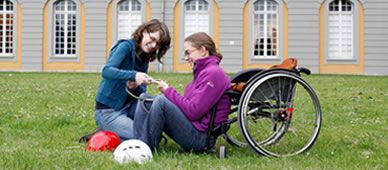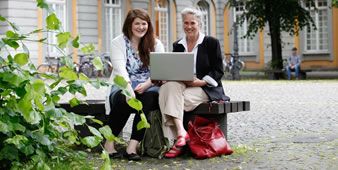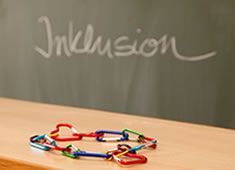"Life inclusive: CompetenceTandems"
CompetenceTandems - why?
The countless mentoring programs for women conducted on the tertiary education level in Germany and elsewhere show: especially at the start and the end of their studies, female university students profit from one-on-one counseling through a personal mentor who provides know-how, advice, and encouragement.
This particularly holds true for female students with disabilities or a chronic illness. The “double burden” they carry can be considerably alleviated through the support of an older, professionally experienced academic who helps them define, target, and attain academic as well as career goals. Individualized mentoring support can also help strengthen the students’ strength and boost their self-confidence and ability for self-assertion.
The insights gathered in the course of the First Nationwide Mentoring Project for Female University Students with a Disability or Chronic Illness (Bundesweit 1. Mentoring-Projekt für Studentinnen mit Behinderung und chronischer Krankheit) conducted by the Hildegardis Society with funding from the German Contergan Foundation provide plenty of evidence for the effectiveness of one-on-one counseling for this target group. The scientific evaluation of the 5-year program (2008-2013), that was carried out by sociologists from Kassel University also shows that the exchange of ideas, views and experiences with the other students proved to be almost as valuable for the mentees as that with their mentors: The so-called “peer mentoring” resulted in a dynamic communication process that complemented the counseling provided by the mentor(s) and generated additional learning effects.
Against this backgrop, the Hildegardis Society developed the innovative concept of the project “Life inclusive: CompetenceTandems” which starts in December 2013. Cmbining the elements of both mentoring appoaches, it is based on utilizing the learning effects provided by the experience of diversity and difference. Targeted at both female university students with and without disabilities, it is fully inclusive and thus reflects a highly topical aspect of the current educational and social discourse. The core element of the program are the so-called tandems, which will consist of one student with a disablity and one student without a disability.


